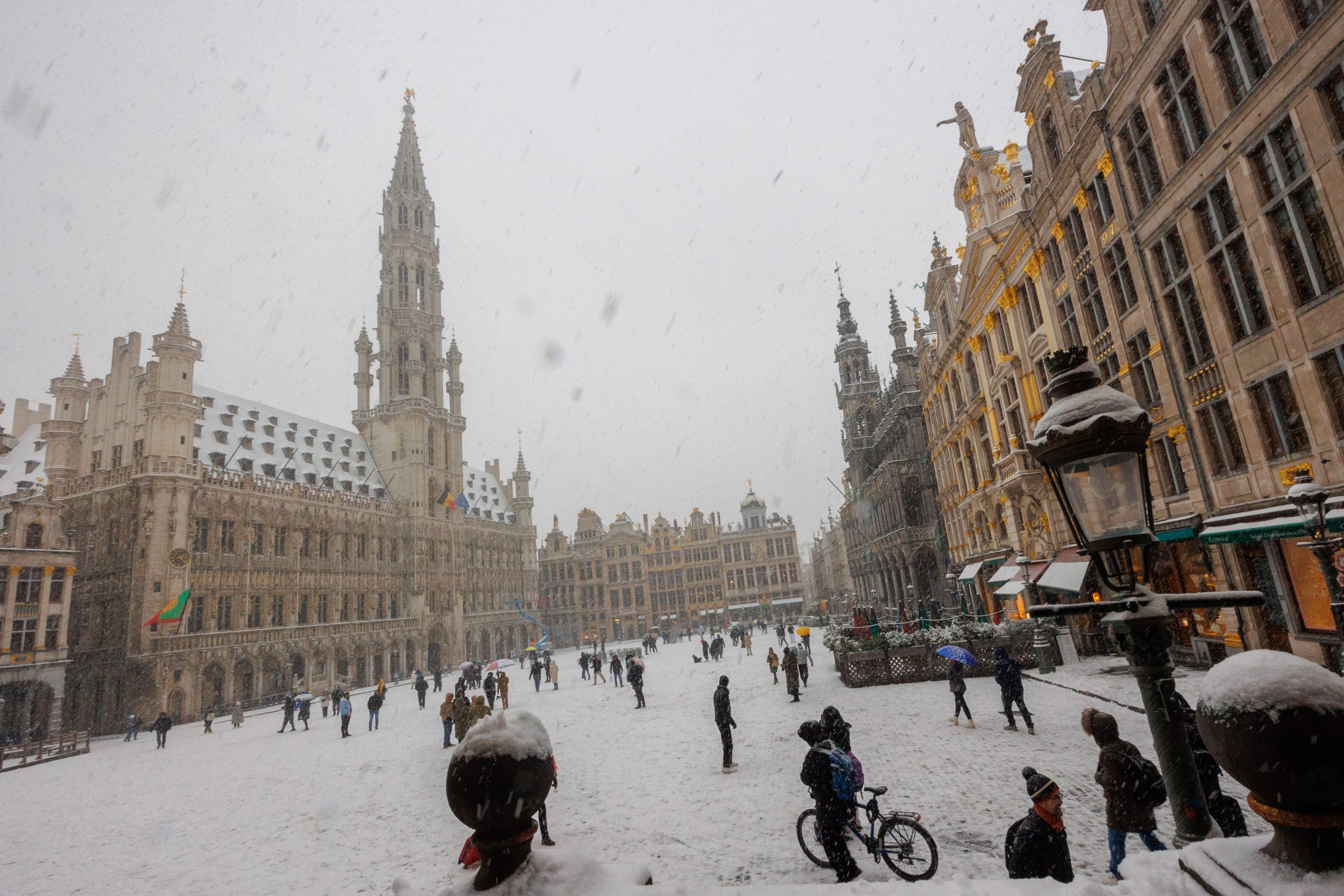
Unprecedented snowfall has engulfed British airports, leading to widespread travel chaos and leaving thousands of passengers stranded. This extreme weather event has exposed the vulnerabilities of the UK's transport infrastructure and raised concerns about its preparedness for future weather disruptions.
The heavy snowfall has forced the closure of several major airports in Britain, including London Heathrow, London Gatwick, and Manchester. These airports, which handle a significant proportion of the country's air traffic, have been closed for varying periods of time, disrupting flights to and from both domestic and international destinations.
The closure of these airports has led to the cancellation of hundreds of flights, leaving passengers stranded and uncertain about when they will be able to travel. The affected passengers include both business travelers and holidaymakers, who have faced major inconveniences and financial losses due to the disruptions.
Passengers trying to travel through the affected airports have faced extremely challenging conditions. Long queues have formed at check-in desks and security checkpoints, as staff struggle to manage the disruption caused by the snow and the large number of stranded passengers.
In addition to the flight cancellations, the snowfall has caused significant delays to those flights that have been able to operate. Passengers have reported waiting for hours on airport floors, with limited access to food, drinks, and basic amenities. This has led to frustration and discomfort among travelers.
The travel chaos caused by the snowfall has had a significant impact on the UK's tourism and economy. Many businesses in tourist destinations heavily rely on visitors arriving by air, and the airport closures have resulted in a loss of revenue for these businesses.
The disruptions have also affected supply chains and the movement of goods, causing delays and additional costs for businesses. The economic impact of the snowfall is estimated to be in the millions of pounds per day, as businesses struggle to cope with the challenges posed by the weather.
The snowfall has raised concerns about the resilience of the UK's transport infrastructure to extreme weather events. Experts have called for investment in improved snow clearance equipment and more resilient infrastructure at airports and other transport hubs.
There have also been calls for improved coordination between airports, airlines, and other stakeholders to ensure a more efficient response to future disruptions. This includes better communication with passengers and more proactive measures to prevent overcrowding and chaos at airports.
The extreme snowfall has also raised concerns about the potential impact of climate change on the UK's weather patterns. While it is impossible to directly attribute this particular weather event to climate change, scientists have warned that the frequency and severity of such events are likely to increase in the future.
The UK government has been urged to take urgent action to address climate change and mitigate its potential impacts on the country's infrastructure and economy. This includes investing in renewable energy, reducing carbon emissions, and adapting infrastructure to withstand extreme weather events.
The snowfall that has paralyzed British airports has exposed the challenges posed by extreme weather events to the UK's transport infrastructure. The travel chaos and disruption experienced by passengers highlight the need for improved preparedness and resilience to future disruptions.
The snowfall has also raised concerns about the potential impact of climate change on the UK's weather patterns. Experts have urged the government to take urgent action to address climate change and mitigate its potential impacts on the country's infrastructure, economy, and way of life.
Post a Comment